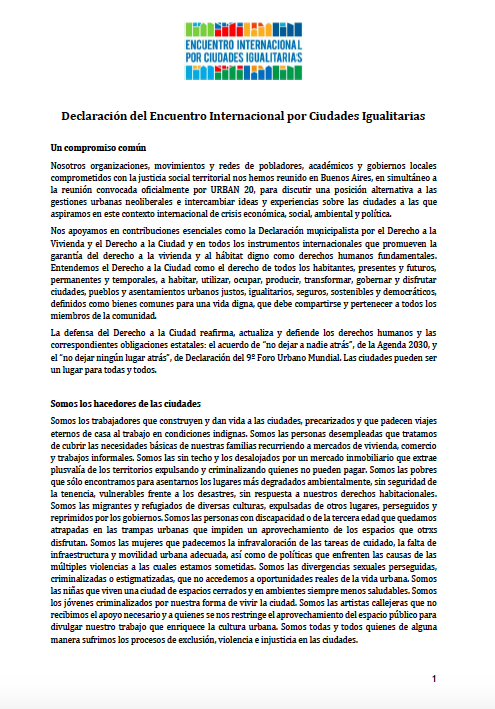II. Violations of Peasants’ Rights
– Millions of peasants have been forced to leave their farmland because of land grabs facilitated by national policies and/or the military. Land is taken away from peasants for the development of large industrial or infrastructure projects, extracting industries like mining, tourist resorts, special economic zones, supermarkets and plantations for cash crops. As a result, land is increasingly concentrated in a few hands.
– States neglect the farm sector and peasants receive inadequate income from their agriculture production.
– Monocultures for the production of agrofuels and other industrial uses are promoted in favor of agribusiness and transnational capital; this has devastating impacts on forests, water, the environment and the economic and social life of peasants.
– There is an increasing militarization and a number of armed conflicts in rural areas with severe impacts on the full realization of civil rights of peasants.
– As they lose their land, communities also lose their forms of self-government, sovereignty and cultural identity.
– Food is increasingly used for speculation purposes.
– The peasants’ struggle is criminalised.
– Slave labor, forced labor and child labor are still found in rural areas.
– Women’s and children’s rights are the most affected. Women are victims of psychological, physical and economic violence. They are discriminated in their access to land and productive resources, and marginalized in decision making.
– Peasants have lost many local seeds. Biodiversity is destroyed by the use of chemical fertilizers, hybrid seeds and genetically modified organisms developed by the transnational corporations.
– Access to health services and to education is decreasing in rural areas and peasants’ political role in society is undermined.
– As a result of these violations of peasants’ rights, today millions of peasants live in hunger and suffer malnutrition. This is not because there is not enough food in the world, but because food resources are dominated by transnational corporations. Peasants are forced to produce for export instead of producing food for their communities.
– The crisis in the agricultural sector causes migration and the massive displacement and disappearance of peasants and indigenous people
To read the complete document in pdf, click here




